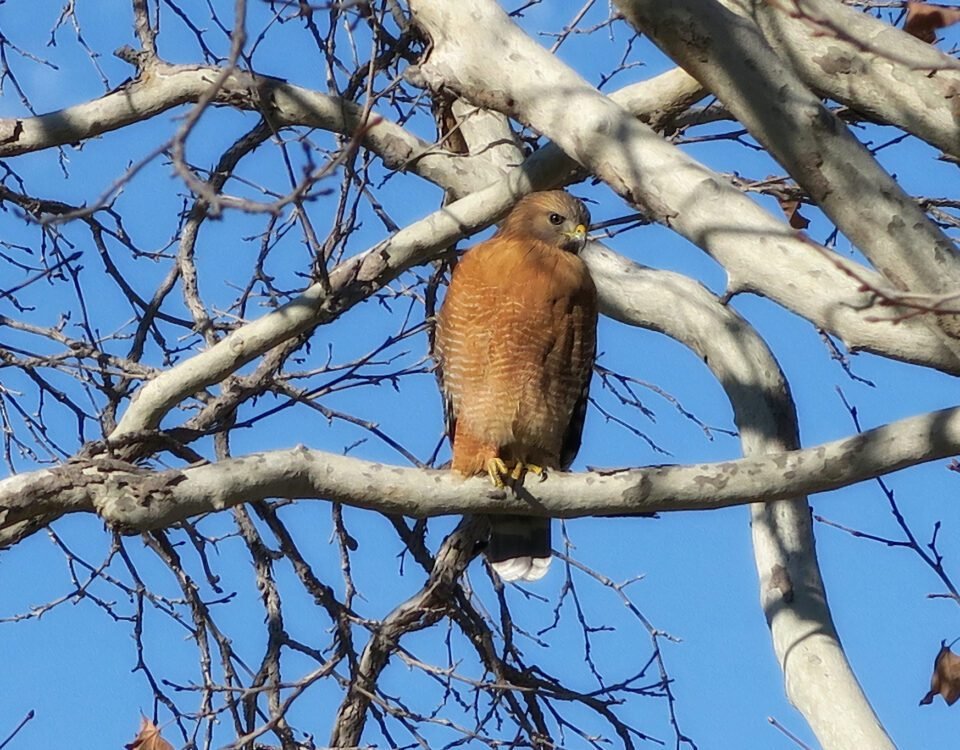


Do Hummingbirds Whistle? Here’s Everything You Need To Know!
November 13, 2023


Do Birds Kiss Just Like Humans? Find Out Here
November 13, 2023Hummingbirds, with their shiny and vibrant plumage, remarkable ability to hover, and expertise at retrieving nectar from the smallest of flowers, are genuinely captivating birds to observe.
Seeing them in their natural habitat is an experience you cannot easily forget. But can you keep a hummingbird as a pet? Continue reading to discover the regulations surrounding hummingbirds and the feasibility of holding them in captivity.
Can You Have Hummingbirds As Pets?
No, keeping hummingbirds as pets is prohibited by law. Their natural behavior involves roaming vast areas for food, and confining them would harm their survival. Thus, it’s best to appreciate them in their wild environment, as holding them in captivity is not only unlawful but also unlikely to succeed.
Certain specialized zoos maintain a selective group of hummingbirds in environments efficiently crafted to mirror their natural surroundings. However, you should never try to capture or keep a hummingbird as a personal pet.


Rufous Hummingbird
Despite their small size, hummingbirds cannot walk or hop like many other birds due to their tiny legs. These legs only allow them to perch and shuffle side to side, so confinement in a cage would severely limit their movement.
Moreover, their diet primarily consists of insects and nectar, which are more readily available for most people.
Why Don’t Hummingbirds Make Good Pets?
Hummingbirds traverse vast distances daily, making confinement unsuitable for them. Their minute size poses challenges in terms of their care and ensuring their safety.
Here’s why they do not make good pets:
1: Dietary Needs
Though providing sugar water is a common practice to assist migrating hummingbirds, they have complex dietary needs beyond this simple solution.
It would take a fully equipped greenhouse filled with specific plants, flowers, and nutrients to cater to a hummingbird’s dietary needs, considering they feed every 10 to 15 minutes.
If the plants in this environment fail to thrive consistently, the hummingbird’s life is at risk.
2: Delicate Nature
The miniature size of hummingbirds — comparable to the weight of a dime — makes them exceptionally delicate. Any attempt to handle them poses significant risks.
Even with the best intentions, there’s a substantial likelihood of causing them harm or even unintentionally causing their demise.
3: Exercise Requirements
Ensuring good exercise for captive birds is crucial. Since hummingbirds can reach speeds between 30 to 45 miles per hour, they require an expansive area for flight.
Even in a spacious environment like a large greenhouse, the dangers are numerous. Colliding with an obstacle at such speeds can be fatal, especially as they aren’t accustomed to navigating around artificial structures.
4: Defensive Behavior
Hummingbirds, in their natural habitat, are generally non-aggressive. However, when they feel threatened or are being handled, their instinct is to defend themselves.
Their beaks are sharp and sturdy, capable of inflicting pain if they decide to peck. Any defensive action on their part can harm them or the person, making interaction risky for both.
Is Petting A Hummingbird Illegal?
In the United States, it’s entirely illegal to capture or keep a hummingbird in captivity. These wild birds have distinct dietary needs and behaviors that are impossible to reproduce in a confined setting. They are protected under the provisions of the Migratory Bird Treaty Act.
The Migratory Bird Treaty Act of 1918 prohibits the possession of any migratory bird in the United States. This means it’s illegal to keep hummingbirds, their nests, offspring, or any part of them without a proper permit. Violating these regulations can result in fines ranging from $15,000 to $250,000.


Hummingbirds on Tree
A few individuals are permitted to breed and sell hummingbirds, but they require special licenses. Typically, the offspring are purchased by governmental agencies for display in zoos. In essence, while you can admire these creatures, you cannot possess them.
While the U.S. has set these regulations, many other countries have similar rules. If you reside outside the U.S., it’s essential to consult local governmental bodies to determine if your nation adheres to the Migratory Bird Treaty Act of 1918 or has equivalent legislation.
How Much Does A Hummingbird Cost?
Engaging in the buying or selling of hummingbirds is prohibited by law. Those involved in the illicit hummingbird trade can face hefty penalties, with fines ranging from $15,000 to $250,000 upon conviction.
Moreover, pet stores are prohibited from selling hummingbirds, and any unauthorized trade involving these birds or their eggs constitutes a federal crime.
Can You Tame A Hummingbird?
Though the Migratory Bird Treaty Act prohibits capturing or keeping a hummingbird, there’s no restriction against feeding them in your garden using specifically designed sugar-water feeders. Over time, you might even recognize familiar faces that return repeatedly.
With patience and consistency, a hummingbird might adapt to human presence, especially near feeders filled with nectar or sugar water. In some cases, they might even momentarily perch on a finger extended near the feeder. Yet, any further interaction beyond this should be avoided.
Do Hummingbirds Thrive In An Aviary?
It’s impermissible to keep hummingbirds in an aviary. The law prohibits keeping hummingbirds in captivity, regardless of the nature of the enclosure. Aviaries are not facilitative habitats for these birds.
Requiring expansive areas to search for food and diverse plants and flowers for sustenance, hummingbirds will not thrive or fare well within the confines of an aviary or cage.
What If I Find A Hummingbird On The Ground?
If you stumble upon a hummingbird on the ground, it’s likely not alive. However, if it’s still breathing, adhere to the following guidelines:
- If the hummingbird is straddled in a bush, tree, or even on your porch rather than on the ground, it’s likely all right.
- If you discover the hummingbird on the ground or if it’s alive, resist the urge to touch or move it. Leave it where it is.
- Ensure that no dogs are nearby, or if they are, ensure they’re securely restrained.
- If the bird is grounded, avoid relocating it or placing it elsewhere. It might be suffering from an ailment or injury, and moving it might exacerbate its condition.
- Reach out to a wildlife rehabilitator. If you can approach the bird without disturbing it, snap a photo with your mobile phone or camera and inform the rehabilitator about the image.
- If the bird seems too ill or severely injured beyond the help of a wildlife rehabilitator, contact your local animal control.
- Inform them about the injured bird and provide precise directions.
Is Buying Hummingbird Eggs Allowed?
Buying or selling not only live hummingbirds but also their eggs is prohibited. The Migratory Bird Treaty Act makes it illegal to remove hummingbird eggs from their nests or possess them.


Hummingbird Eggs
Hence, if you encounter a hummingbird nest that appears to be unattended, it’s wise to let it be. Besides the legal implications, the chances of tampering with a hummingbird nest and successfully incubating the eggs in a man-made setting are extremely slim.
What Else You Can Do Instead Of Petting A Hummingbird?
It might be tempting to keep a hummingbird as a pet, but it’s best to appreciate them in their natural surroundings. Here are some alternatives:
- Photography and Birdwatching: Instead of captivating them, photograph or observe hummingbirds. Photography lets you capture their elegance, while birdwatching gives a deeper connection to their natural behaviors. Use online resources for tips, and bring binoculars to spot different species.
- Backyard Feeders: Set up feeders in your yard to provide hummingbirds with nectar. This way, you can watch them closely without restricting their freedom. Use a 4:1 water-to-sugar mixture for the nectar and place the feeder in a shaded location. Regular cleaning is essential to ensure their health.
- Support Conservation: Join organizations like the National Audubon Society or the Hummingbird Society that focus on hummingbird conservation. Volunteering, donating, or participating in research projects can significantly impact.
Conclusion
Ultimately, due to the complexities of caring for hummingbirds and the associated ethical considerations, they could be better pets for the majority. Therefore, observing them in their natural habitats and supporting conservation initiatives are more responsible ways to admire and show reverence for these enchanting avians.



